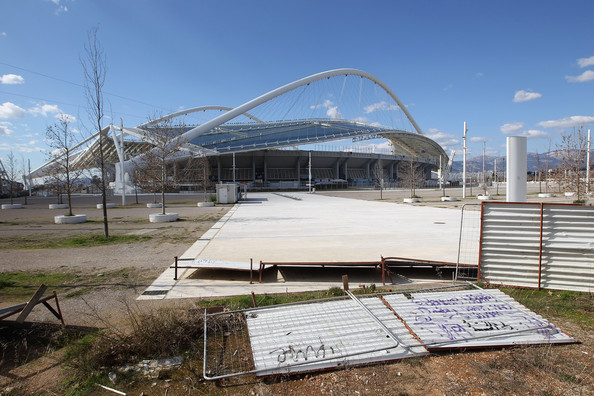By Euronews
Ten years after hosting the Olympic Games, Greece is in the spotlight again.
While some believe the capital Athens benefitted from the Games, images from Hellinikon seem to tell another side to the story.
In contrast to the splendour seen in 2004, today pictures of neglected sports venues are making the headlines around the world.
Used for just 15 days, many sites have fallen into neglect. Some believe the cost of the Games contributed significantly to the financial crisis in Greece.
Others, such as volunteer Stella Ntala, remember 2004 fondly, but hoped Greece would change for the better in the aftermath of the competition.
“My strongest memory is the smiles of the people around me,” she said. “I will never forget how proud we were in 2004. We also hoped for a better future. We thought that Greece would become a better country because of the Games.”
So, why have some sites been allowed to fall into disrepair? Are the two governments who took power since the Games responsible for failing to capitalise on Greece’s Olympic history?
We asked Kostas Kartalis, the Secretary General of the Athens Games.
“There was a plan to utilise each venue,” he told us. “But after 2004, the next government chose not to implement those plans due to political reasons. Then we basically lost the momentum – Greece didn’t manage to keep the spirit of the Games alive. This is why some of the venues were abandoned.”
The Greek government recently revealed that sites will be cleaned up and used for public good. The Hellenic Republic Asset Development Fund is now responsible for the privatisation of some venues.
In the wake of the announcement we talked to Stratos Safioleas, an Athens 2004 spokesman who was keen to dispel rumours about the financial impact of the Games.
“Anyone who says the Olympic Games are responsible for the economic crisis must not have been very good at maths at high school. The investment in the 2004 was eight billion euros. In 2009, the Greek debt was around 320 billion.”
The Olympic Games is first and foremost a sporting event, which originated in Greece. As such, the 2004 slogan was “The Olympics come home”.
So why were so many sites fenced off from the public for so many years? And why has it taken so long to rejuvenate the spirit of the Olympics?
Apostolos Staikos, our correspondent in Greece, gave us his thoughts.
“In 2004, Greece won the battle. Ten years later, it seems the country has lost the war. National pride was replaced by disappointment and anger. But, plans to reutilise some of the Olympic venues could contribute to the end of the crisis.”



















